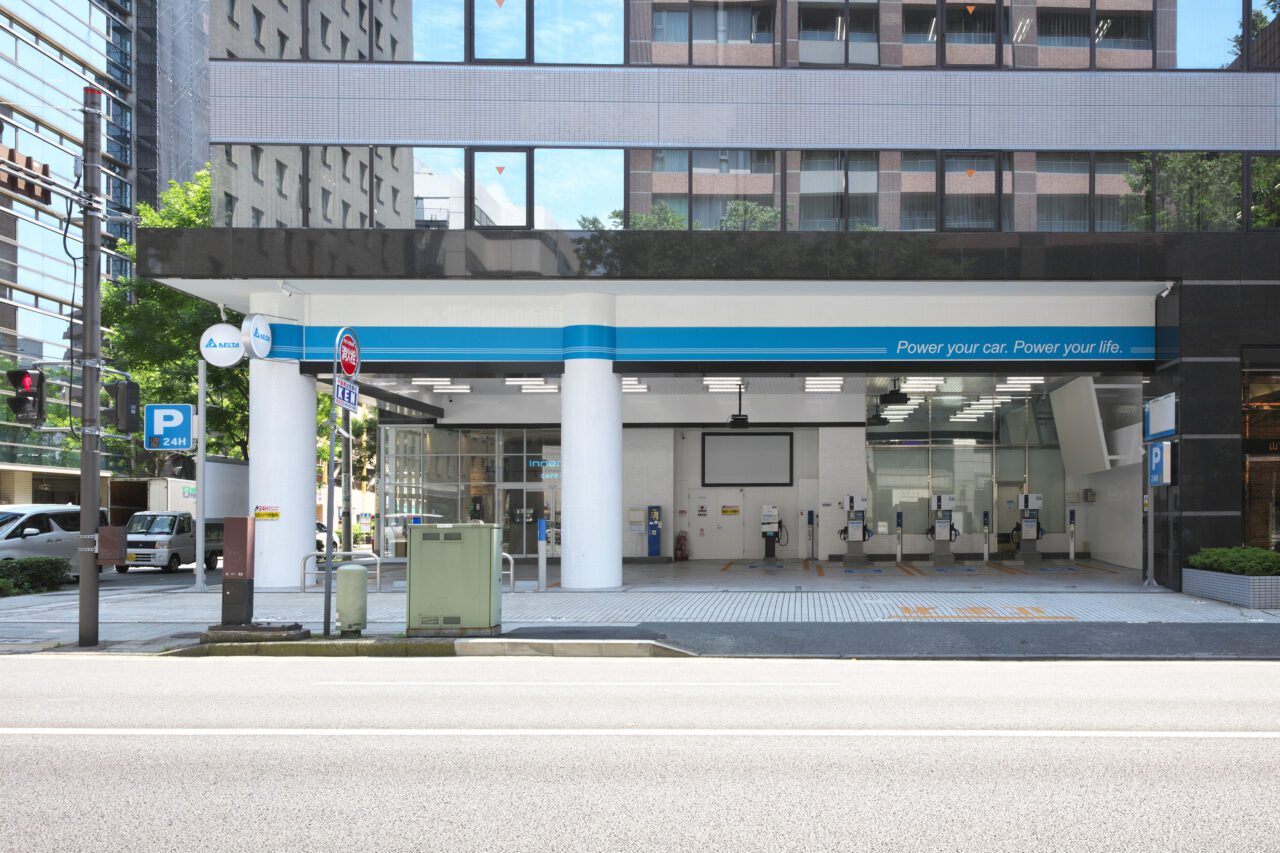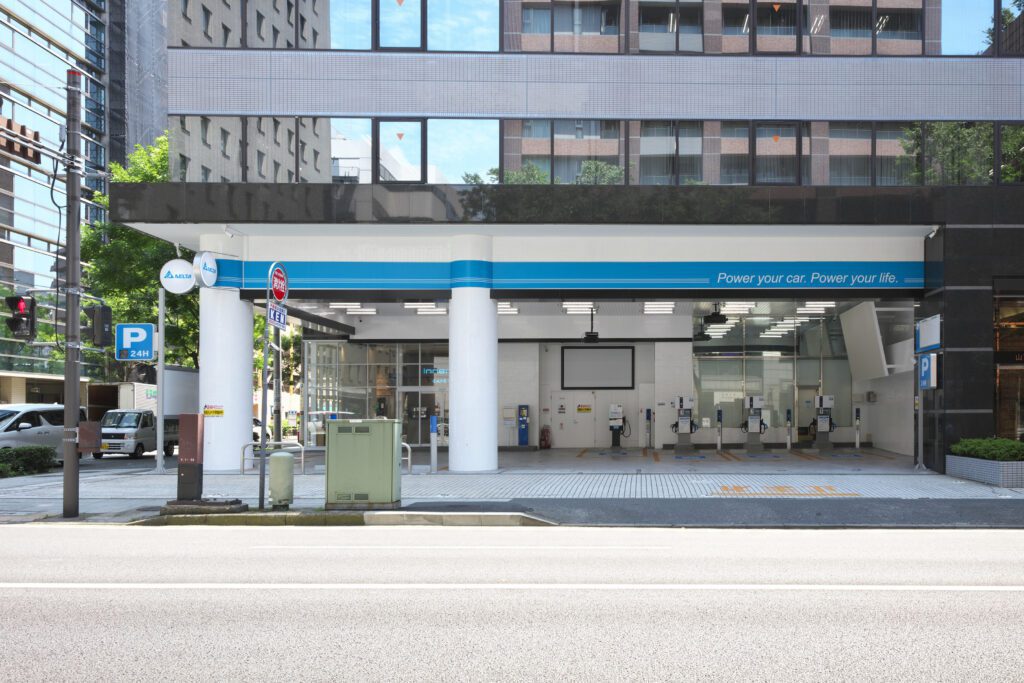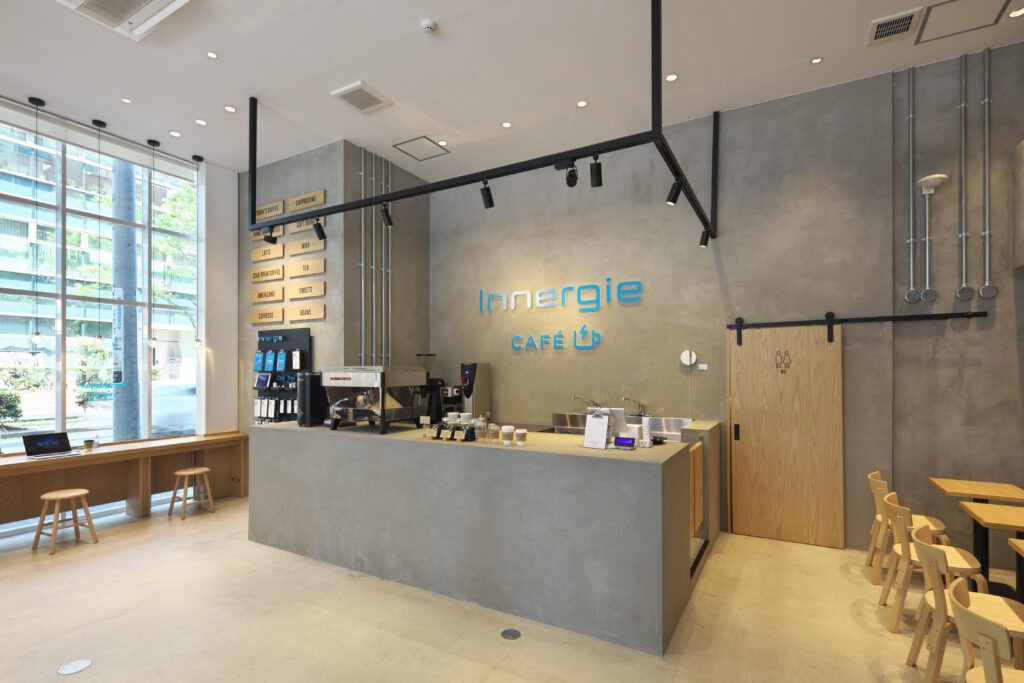EV Charging Café Gives Gas Station New Life

The Biden administration has a goal to make half of all new vehicles sold by 2030 zero-emission. Washington and California plan to ban sales of new gas-powered cars by 2030 and 2035, respectively.
The surge in electric vehicle (EV) sales is not only an issue for automakers. Gas filling stations also face a brutal reality in the coming years-adapt to stay alive. According to Boston Consulting Group, up to 80% of current retail gas stations could be unprofitable by 2035.
There are currently more than 150,000 fueling stations across the U.S.; more than 127,000 are convenience stores (C" stores) that also sell gasoline and/or diesel fuel. While drivers may go there for the pump, it's the C store that keeps the business afloat. In comparison, as of October 2021, the U.S. has fewer than 44,500 public EV charging stations with about 108,000 charging ports, most of which are Level 2 (240 charging volts, 40 amp circuit), according to the U.S. Department of Energy.
Large charging depot for EVs opens in Pasadena, California.
With more and more EVs on the road, EV charging infrastructure needs to keep up-without having to reinvent the proverbial wheel. Retrofitting gas stations into hybrid and even full EV-charging stations is a viable solution to both meet the growing demand and revitalize the business.
At the current stage, EV charging still can't compete with gas pumping in terms of speed (5 minutes to fill up the tank with gas vs. 30 minutes even with the fastest EV charger). While one may stand by the pump and wait 5 minutes, no one is happy to sit in an EV and wait even 10 minutes. However, when it comes to EV charging, efficient use of time is the key. This opens an opportunity to create a new business model for retrofitting gas stations-the EV charging cafe. After all, C stores are the economic driver for gas stations, and there's no reason this concept couldn't work for EV charging stations as well.
In fact, a McKinsey fuel retail report found that people were using convenience stores at gas stations as a way to avoid long lines at the grocery store in 2020, with Royal Dutch Shell reporting that basket sizes had increased at its C stores by 15% in 2020.
 1. Delta Electronics in 2020 joined with Idemitsu Showa Shell, the second-largest petroleum company in Japan, to renovate an old Idemitsu Showa Shell gas station in Yokohama into an EV charging station, complete with a cafe in what was the former carwash. Courtesy: Delta Electronics (Americas)
1. Delta Electronics in 2020 joined with Idemitsu Showa Shell, the second-largest petroleum company in Japan, to renovate an old Idemitsu Showa Shell gas station in Yokohama into an EV charging station, complete with a cafe in what was the former carwash. Courtesy: Delta Electronics (Americas)Identifying this new pain point and opportunity, Delta Electronics has enacted a solution to convert a traditional gas station into an EV charging cafe. In 2020, Delta cooperated with Idemitsu Showa Shell, the second-largest petroleum company in Japan, to renovate an old Idemitsu Showa Shell gas station in Yokohama (Figure 1) into an EV charging station, complete with a carwash-turned-cafe.
Transforming an Old Gas Station into an EV Charging CafeRetrofitting the old gas station into an EV charging station involved removing all the oil tanks originally located under the building, as well as converting the vehicle maintenance and oil change rooms into commercial power conditioning systems (PCS) and battery energy storage systems (BESS).
Additionally, above-ground refueling equipment was turned into parking spaces for an unmanned parking system with three 25kW Delta DC Wallbox EV chargers, and one V2B (vehicle-to-building) bidirectional EV charge/discharge charger (Figure 2).
 2. Above-ground refueling spots were turned into parking spaces for a charging area three 25kW Delta DC Wallbox EV chargers, and one V2B (vehicle-to-building) bidirectional EV charge/discharge charger. Courtesy: Delta Electronics (Americas)
2. Above-ground refueling spots were turned into parking spaces for a charging area three 25kW Delta DC Wallbox EV chargers, and one V2B (vehicle-to-building) bidirectional EV charge/discharge charger. Courtesy: Delta Electronics (Americas)Meanwhile, the carwash was transformed into the Innergie Cafe (Figure 3), where retail IoT (Internet of Things) solutions such as large projection equipment and air quality management were introduced.
The small retail store attached to the gas station was transformed into a multi-functional exhibition space for art exhibitions, and the offices on the second floor were transformed into a monitoring center, which allowed managers to remotely monitor the electricity usage of chargers and other operations.
 3. A carwash at the remodeled gas station site was transformed into the Innergie Cafe, where retail IoT solutions such as large projection equipment and air quality management were introduced. Courtesy: Delta Electronics (Americas)
3. A carwash at the remodeled gas station site was transformed into the Innergie Cafe, where retail IoT solutions such as large projection equipment and air quality management were introduced. Courtesy: Delta Electronics (Americas)Power consumption-wise, the electrical facilities were changed to 400 V. As a safety measure, various sensors were installed in the electrical room to monitor for water leakage, water levels and earthquakes. In the event of a natural disaster, such as flooding, tsunamis, and earthquakes of magnitude 5.0 or higher, the electrical system would automatically cut power to prevent accidents.
A New Generation of Charging Stations = IoT + V2X + Smart GridDelta's Yokohama EV charging station integrates IoT, V2X (Vehicle to Everything), and smart grid technologies to provide not only charging services, but also cafe and retail services for EV owners, providing a new way of fueling" for both the vehicle and the driver.
Once EV owners enter the charging station area, they will receive an automatic prompt from the Delta proprietary app, through which they can perform charging or electricity selling, and settle payment with a credit card or touchless payment method such as Apple Pay.
Each charge takes about 30 minutes but EV owners don't have to be idle, thanks to the station's other features. Customers can recharge themselves while waiting and check emails and messages, use the E-coupons provided by the app to enjoy a cup of coffee, or shop at nearby cooperative stores or marketplaces. Seats at the cafe are installed with Delta's Innergie universal quick chargers, allowing customers to charge their mobile devices while waiting for their EV to charge.
Key to More EVs on the Road: Convenient Charging ExperienceThis EV charging station in Yokohama is a bold attempt to integrate power system and EV mobility technology. Based on Delta's energy infrastructure solutions, including PCS, BESS, and EV chargers, Delta incorporates its energy IoT management platform into the app-based payment system to provide an improved and convenient user experience and create a new business model that seamlessly combines mobility and power infrastructure, while appealing to EV customers who are on the go and looking to get the most out of their vehicles and their time. There is a huge business potential here: the McKinsey report expects the EV-charging value pool to increase to $20 billion by 2030.
The convenience of charging is a key factor as to whether EVs can become more popular in the future. Combining a convenient charging infrastructure with new consumer experiences, the retrofitting of an old gas station into an EV charging cafe demonstrates a new charging + lifestyle" operation model that brings convenience to EV owners and profits to charging stations by allowing them to respond to where the market is going.
-Charlie Wu is VP of Solution Engineering at Delta Electronics (Americas).
The post EV Charging Cafe Gives Gas Station New Life appeared first on POWER Magazine.